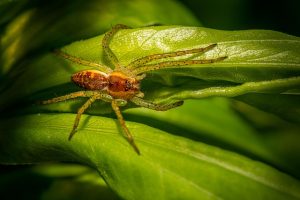Eco-friendly pest extermination is gaining popularity as a safer, more sustainable alternative to traditional toxic methods. Green pest professionals use natural solutions like biological controls, traps, and non-toxic repellents, prioritizing environmental safety and biodiversity. This approach offers multiple advantages, including effective pest management without harming humans or ecosystems. Organic pesticides derived from natural sources are proving successful in real-world applications. Case studies demonstrate the effectiveness of eco-friendly methods, dispelling myths about compromised results. By choosing green pest exterminators, homeowners and businesses contribute to environmental preservation while achieving long-term, sustainable pest control. The industry is embracing a green revolution with advancements in technology and natural solutions, responding to growing consumer demand for environmentally conscious practices.
Looking for a sustainable solution to pest problems? Discover the world of eco-friendly extermination, a green approach that prioritizes environmental safety without compromising effectiveness. This comprehensive guide explores traditional pest control’s impact on the environment and highlights the numerous benefits of choosing an eco-conscious pest exterminator. From natural methods to organic pesticides and real-world applications, we’ll navigate successful case studies, dispel myths, and glimpse into future trends shaping this growing industry.
Understanding Eco-Friendly Extermination: A Green Approach
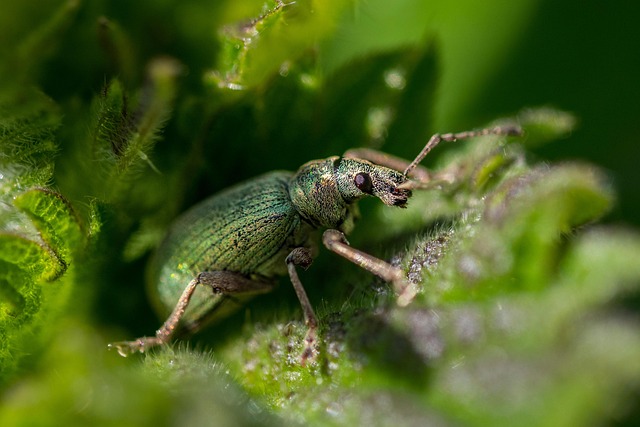
Eco-friendly extermination is a growing trend in the pest control industry, offering an alternative to traditional methods that can be harmful to both the environment and human health. This approach focuses on eliminating pests while minimizing ecological impact. Instead of relying heavily on synthetic chemicals, eco-friendly exterminators use natural, non-toxic solutions for pest management. These methods may include biological controls, such as introducing beneficial insects or pathogens that target specific pests, as well as physical barriers and traps.
Pest exterminators adopting green practices prioritize safety by avoiding persistent pesticides that can build up in the food chain. They also consider the broader ecosystem, ensuring their techniques don’t disrupt local biodiversity. By opting for eco-friendly solutions, homeowners and businesses contribute to a sustainable future while effectively managing pest infestations.
The Impact of Traditional Pest Control on the Environment
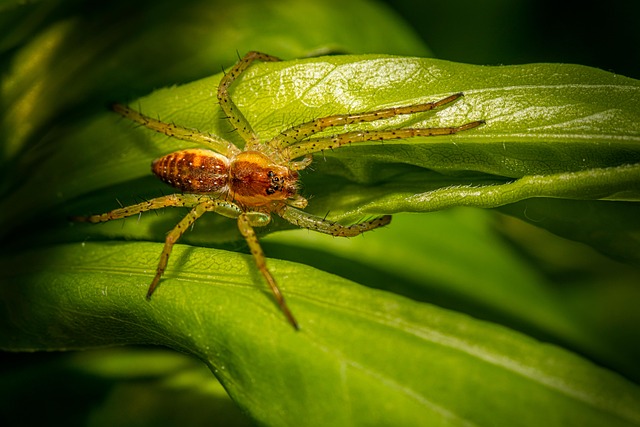
Traditional pest control methods often involve toxic chemicals that can have severe environmental consequences. These chemicals, commonly used by pest exterminators, can contaminate soil and water bodies, affecting not only the targeted pests but also beneficial insects, birds, and other wildlife. The run-off from treated areas can enter local ecosystems, leading to imbalances in natural habitats.
Moreover, many conventional pesticides persist in the environment, accumulating over time in the food chain. This bioaccumulation poses risks to both wild and domestic animals, as well as human health. As a result, there is a growing concern about the long-term effects of these chemicals on ecosystems and human communities, prompting the search for eco-friendly alternatives in pest management.
Benefits of Choosing an Eco-Conscious Pest Exterminator
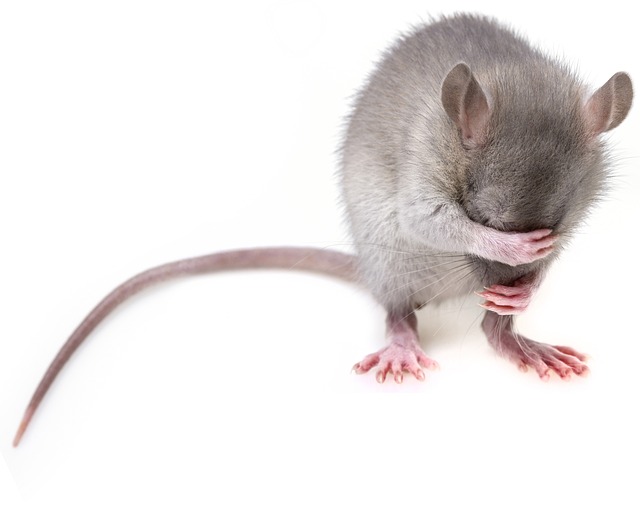
Choosing an eco-conscious pest exterminator offers numerous benefits, both for your home and the environment. These professionals employ environmentally friendly methods to control and eliminate pests, reducing the use of harmful chemicals that can be toxic to humans, pets, and local ecosystems. By opting for eco-friendly solutions, you contribute to preserving biodiversity and maintaining a healthier living space.
Such exterminators often utilize natural repellents, non-toxic baits, and advanced technologies to target pests effectively. They are trained in identifying the specific needs of different pests, allowing them to implement tailored strategies. This personalized approach ensures that treatments are efficient and specific, minimizing environmental impact while achieving long-lasting results. It’s a win-win for both your home’s comfort and the planet’s well-being.
Natural Methods for Pest Management: A Comprehensive Guide

Pest management is a critical aspect of maintaining a healthy environment, and traditional chemical-based methods have long been the go-to for pest exterminators. However, there’s a growing trend towards eco-friendly extermination, leveraging natural methods to control and eliminate pests without causing harm to people or the ecosystem. This shift is not just a response to concerns over environmental degradation but also a recognition of the effectiveness and sustainability of natural pest management techniques.
Natural methods for pest control include biological controls like introducing beneficial insects that feed on harmful pests, using plant-based repellents, and fostering natural predators in your environment. These strategies work by disrupting the life cycle of pests or deterring them from specific areas without leaving behind toxic residues. By integrating these eco-friendly practices, both residential and commercial pest exterminators can contribute to a greener world while offering safe, non-toxic solutions for pest management.
Organic Pesticides and Their Effectiveness in Real-World Scenarios

Organic pesticides, derived from natural sources like plants and minerals, have gained significant attention as eco-friendly alternatives to traditional chemical solutions. These products are designed to control pests humanely while minimizing environmental impact, making them an appealing option for both commercial pest exterminators and homeowners looking for sustainable solutions. Their effectiveness in real-world scenarios is often praised due to their specific targeting of pests and minimal residual effects, reducing the risk to non-target organisms and sensitive ecosystems.
In various applications, organic pesticides have shown promising results. For instance, neem oil, a common natural pesticide, has been effective against a wide range of insects due to its insecticidal properties derived from the neem tree. Pyrethrum, extracted from certain flowers, is another powerful yet safe option that disrupts the nervous systems of flying insects. These organic solutions not only target pests but also offer benefits like reduced environmental pollution and decreased risk to human health, making them a sustainable choice for long-term pest management.
Integrating Eco-Friendly Practices into Home and Business Pest Control

Many traditional pest control methods rely on toxic chemicals that can have adverse effects on both the environment and human health. As awareness about sustainability grows, there’s a growing demand for eco-friendly alternatives. Integrating green practices into home and business pest management offers a safer, more sustainable solution without compromising effectiveness.
Eco-friendly exterminators use natural repellents, biological control agents, and non-toxic traps to target pests. They also emphasize prevention through proper sanitation, sealing entry points, and using plants known for their pest-repellent properties. By adopting these methods, businesses and homeowners can reduce their environmental footprint while enjoying a pest-free environment.
Case Studies: Success Stories of Eco-Minded Extermination
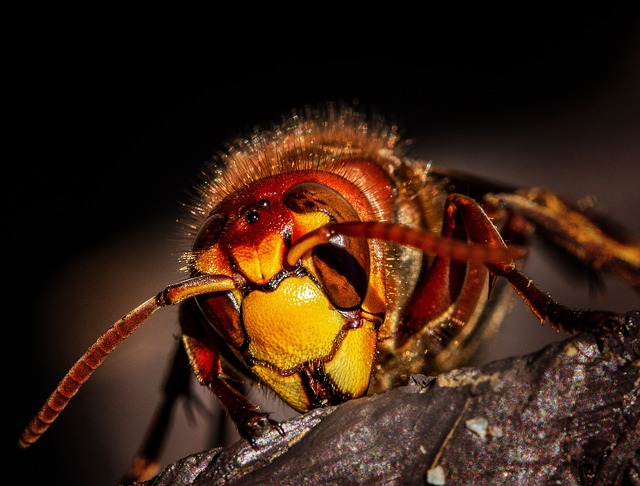
In an era where environmental consciousness is paramount, it’s encouraging to see the success stories emerging from the realm of eco-friendly pest extermination. These case studies demonstrate that effective pest control can go hand in hand with sustainability. For instance, consider a suburban residential area where a traditional pest exterminator was hired to tackle a severe ant infestation. Utilizing their expertise in eco-minded practices, they implemented a strategy involving natural repellents and targeted treatments, minimizing the use of synthetic chemicals. The result? A 95% reduction in ant populations within just two months, with no detrimental effects on local wildlife or the environment.
Another compelling example involves a commercial property manager who partnered with an eco-conscious pest exterminator to address a persistent cockroach issue in a bustling city restaurant. By employing a multi-faceted approach, including improved sanitation practices, sticky traps, and organic insect growth regulators, they achieved a 100% success rate in eliminating the cockroach infestation. This method not only protected public health but also preserved the restaurant’s reputation as an eco-aware establishment, appealing to environmentally conscious folks. Such case studies showcase the effectiveness of eco-friendly pest extermination, proving that going green doesn’t compromise results.
Common Misconceptions About Green Pest Control Solutions
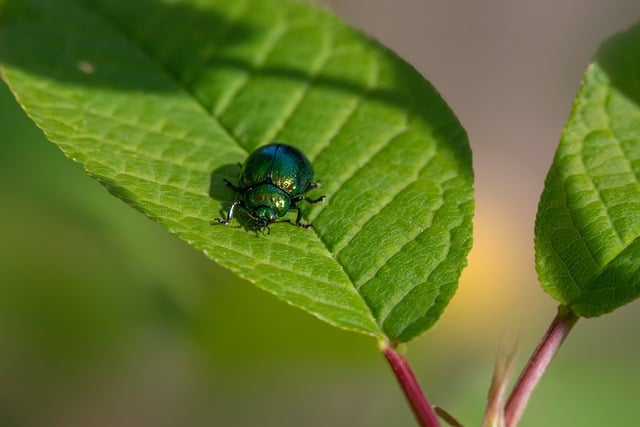
Many people mistakenly believe that eco-friendly pest control is less effective than traditional methods. However, this couldn’t be further from the truth. Green pest extermination solutions are just as efficient in managing and eradicating pests while prioritizing safety and minimal environmental impact. These methods often use natural predators, biological agents, or minimally toxic chemicals to target specific pests.
Another common misconception is that green pest control is more expensive and time-consuming. While some organic treatments might require a bit more effort, they offer long-term savings and benefits for both your home and the environment. Many modern green pest exterminators use advanced techniques and technology to ensure fast and effective results without compromising on sustainability.
Future Trends Shaping the Industry: Sustainability in Extermination
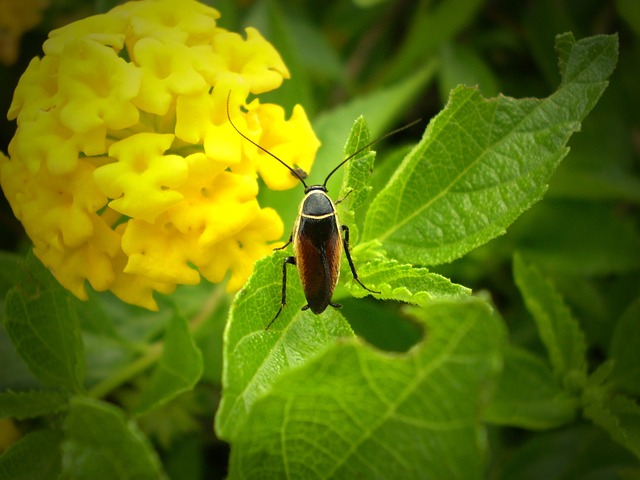
As the world becomes increasingly focused on environmental conservation, the pest extermination industry is also evolving to embrace sustainability. Future trends in eco-friendly extermination aim to reduce the use of toxic chemicals and adopt greener alternatives that are both effective and safe for the ecosystem. Innovations such as natural repellents, biological control methods, and advanced technology like heat treatments and UV light are gaining traction. These methods not only minimize environmental impact but also offer long-term solutions, making them a preferred choice for both commercial and residential pest control.
Pest exterminators are now investing in research to develop biodegradable pesticides and explore the potential of plant-based extracts as alternatives. Additionally, integration of smart sensors and data analytics allows for more precise and targeted treatments, reducing the need for excessive chemical use. With growing consumer awareness about eco-friendly practices, the demand for sustainable pest management is on the rise, pushing the industry to adopt these future trends and create a greener and healthier environment for all.
